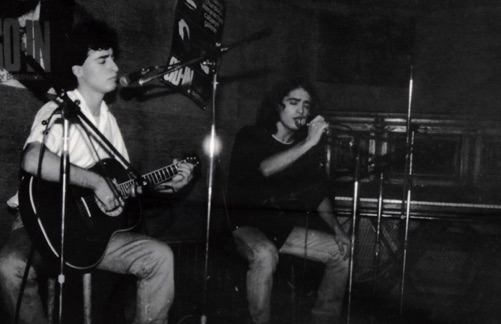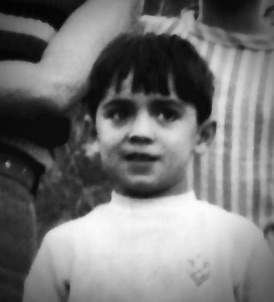

At the age of 22 he founded and directed a choir and music ensemble with members of the Armenian community in Berlin. First he taught young people to understand and pronounce the lyrics of Armenian songs, then he taught them melodies. Because these students were born in the diaspora, most of them had never learned to speak the Armenian language.
Concurrently Arakelian wrote songs for voice and guitar, which he sang and played on the guitar himself.
He also arranged different styles of music, such as folklore, pop, rock.
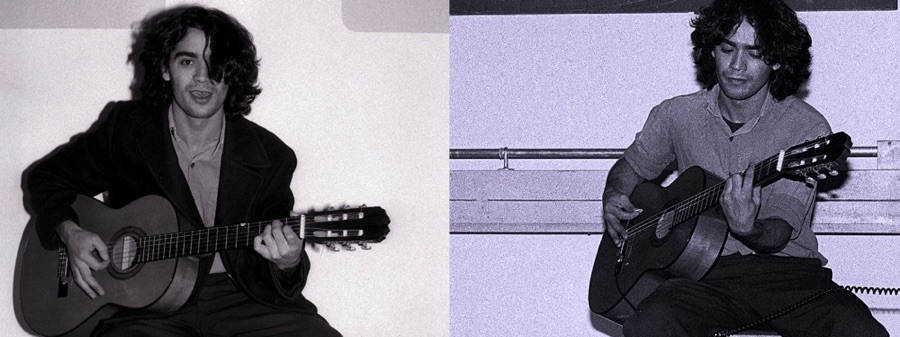
When he was 24 years old, Arakalian and two other musicians founded the jazz band MAGUMA in Berlin.
While MAGUMA co-founder, he composed experimental jazz as well as rhythms which played himself on congas and bongos.
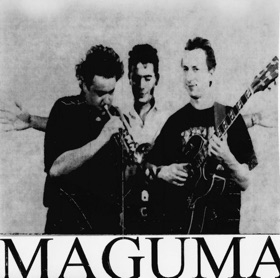
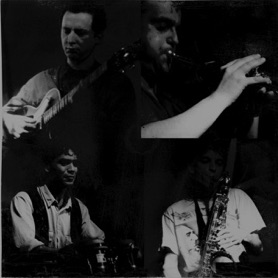
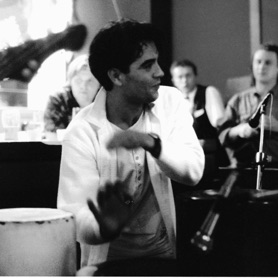
In Berlin he studied opera vocal performance for ten years with L. Wigger, training to become a classical tenor.
During this time, he began a fifteen-year education in harmony and composition with Y. Kronenberg.
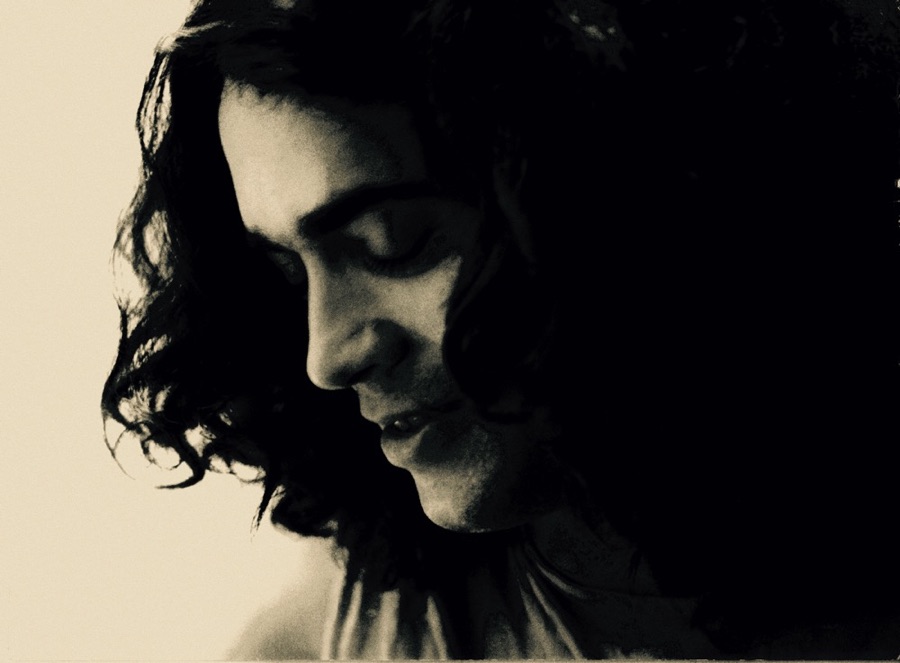

Again spring
Again spring, spring days,
again beautiful hours of life.
Who sees our past?
Who sees our future?
Year after year the desire for love,
Dance with the love of the past year!
The sun, the sun, it is the power of life,
The way out and the source of patience.
Lyric und music
Andre und Masis Arakelian
In 2008 Arakalian performed his compositions and interpretations of Komitas and other art song composers for the first time at the Konzerthaus in Berlin.
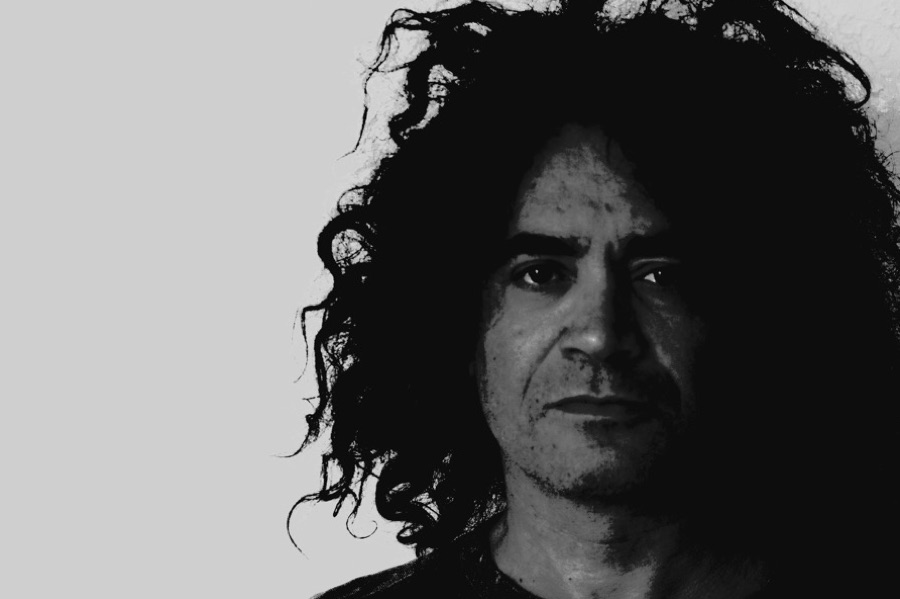

He spent many years studying the works of famous Persian poets such as Hafez, Omar Khayyam and Nima Yushij, finally setting them to music.
April
The green days of springtime have arrived
They have brought light and hope along
The fragile dreams have arrived
Born into our world and turned into hope.
The gleaming bridges have emerged
fromobfuscation And showed my heart the way home
The moon and the sun have arrived
And brought the world dark days and light days.
With your black eyes you bring the springtime
Your smile is a gift for my heart
Stay a while in my dreams
Bloom and grow and turn to light.
Don’t believe that my springtime will
disperse like a storm
Don’t believe that my heart and my
soul will succumb to their madness
Oh, you bring the springtime
Oh, you bring the springtime.
Composer: Masis Arakelian
Lyric: Masis Arakelian

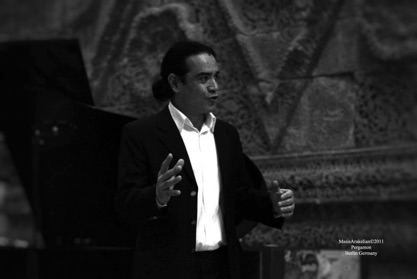
In order to analyse this philosophical poetry, he completed a three-year course at the German-Iranian Dehkhoda e.V. Cultural Association in Berlin with Djamschid Razban. He continued to analyse the poems with the same lecturer even after the course was over. He found this tantamount to understanding the deep background of the poetry before using the words as lyrics in his compositions.
After completing this analysis, in the year 2010 he composed songs for these poems, and presented them in the album entitled "Goftegu-Dialogue". Shortly thereafter, in 2011, he was commissioned by the Berlin Pergamon Museum to premiere these works along with some arias from the opera "Rostam and Sohrab" by the composer and conductor Loris Tjeknavorian, as part of the international exhibition "1000 Years Book of Kings".

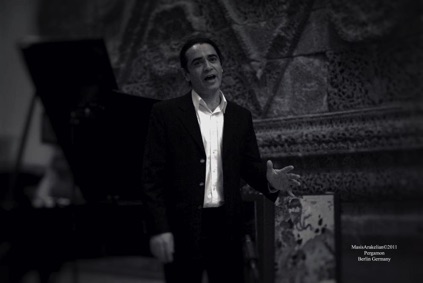

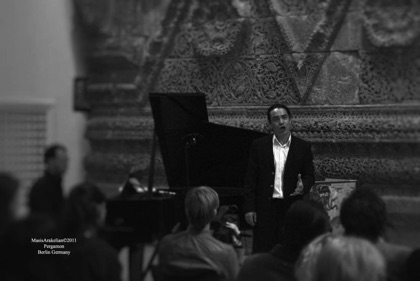
As a tenor and composer, he has worked intensively interpreting the works of the Armenian composer and founder of the new Armenian classical music, Komitas. The works of Komitas are clear and filled with beautiful melodies that carry the soul and the breath of the Armenian people. They are the key to the foundations of Armenian music.
Inspired by the works of Komitas and the roots of Armenian music, with a view to the future and with the goal of finding a new path, the tenor and composer Masis Arakelian published his Armenian CD entitled "Krunk Crane" (Krunk Kranich) in 2013.
When presenting this work, Arakelian used the term "Armenian Art Songs" to describe Armenian music. He laid the foundation for a new style of singing by presenting Armenian music and the works of Komitas along with his own compositions and his own way of interpreting the art song.
In 2016 Masis Arakelian performed the album "Krunk Kranich" at a festival in Bangalore, India, in a Buddhist temple in front of several thousand people from over 150 countries around the world. After the concert, people said:
"It is not important that you do not understand the meaning of the poems. The music finds its direct way into the heart and immediately touches it on the emotional level.
In 2016 he was invited by "Raffi" Club in Tehran, Iran, to give a concert. All proceeds from the tickets and "Krunk Kranich" CD sales were given to Arzach.
The University of Art and Architecture in Tehran invited Masis Arakelian in 2016 to perform his Armenien program, "Krunk Kranich", at the Tehran Opera.
This was the first and only time in the history of the Iranian opera that an Armenian artist performed a purely Armenian classical program covering the topic of the genocide and Komitas, in the Tehran opera. This emphasized the importance of his works for Armenian musical culture.
In 2016, Arakalian was invited to perform a CD release concert of his album "Krunk Kranich" at the international "Fajr" festival in Tehran. During this time he gave a concert in the House of Iranian Artists entitled "Crane and dialogue". In this performance he let the art songs from the album "Krunk Kranich“ and his own compositions from the album "Goftegu-Dialoque“ flow alternately into each other in order to show the listener that their similarities and differences were immediately audible.
In 2018 Masis Arakelian performed the work "Dichterliebe" by the German composer Robert Schumann along with his own album "Krunk Kranich“ in the Komitas Museum concert hall in Yerevan in Armenia.
At the concert, he let the German art songs and the Armenian art songs, which he himself created, flow into each other to show the audience their similarities and differences.
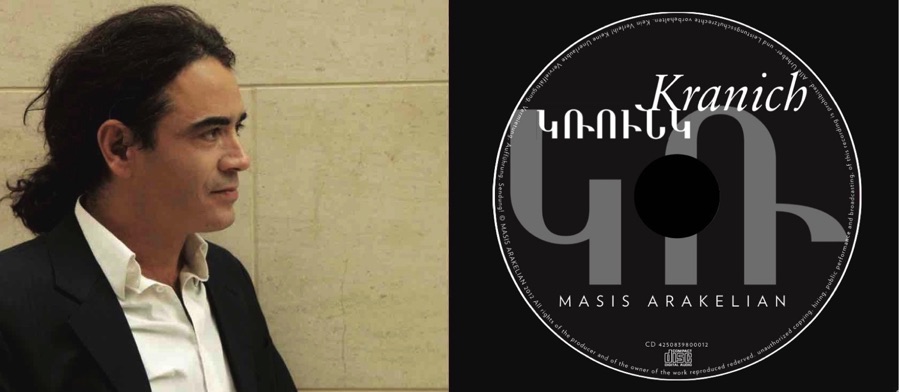
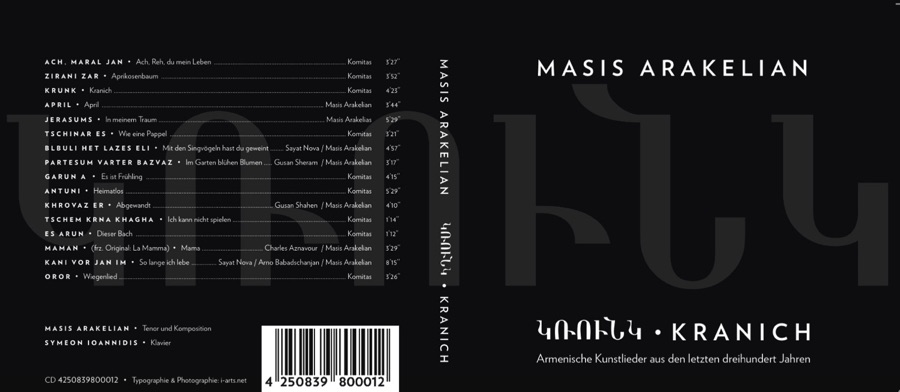
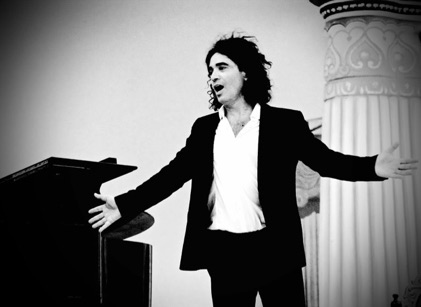
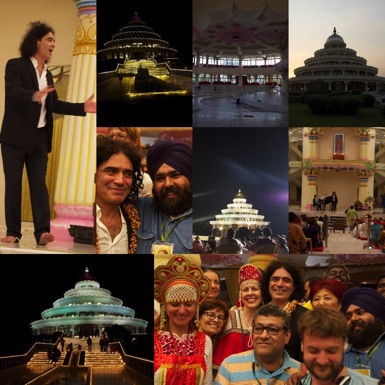
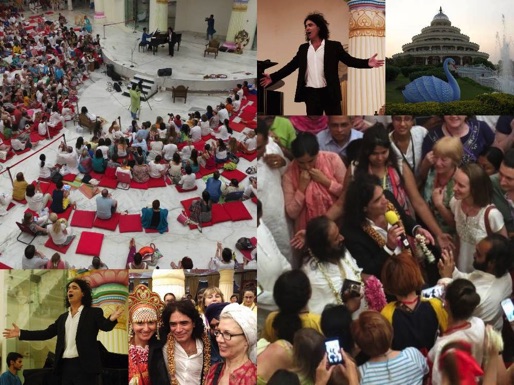

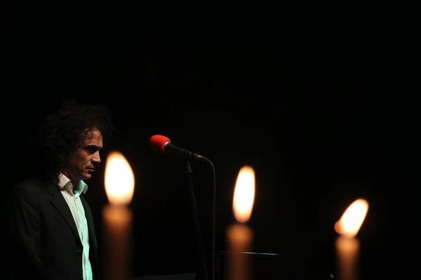

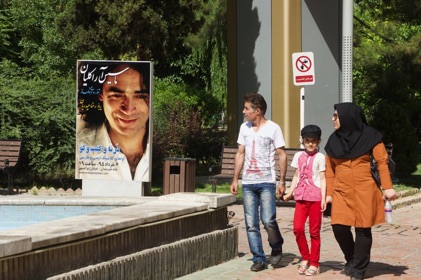
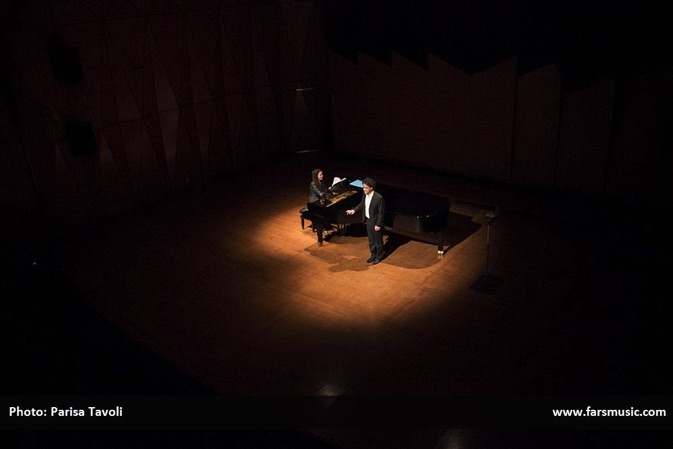
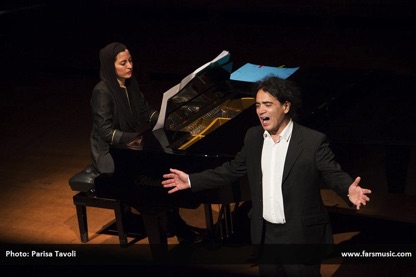
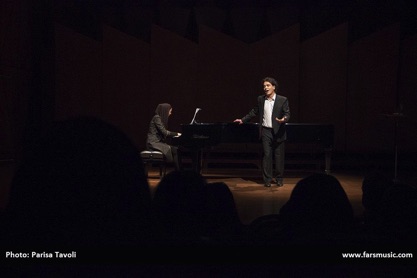
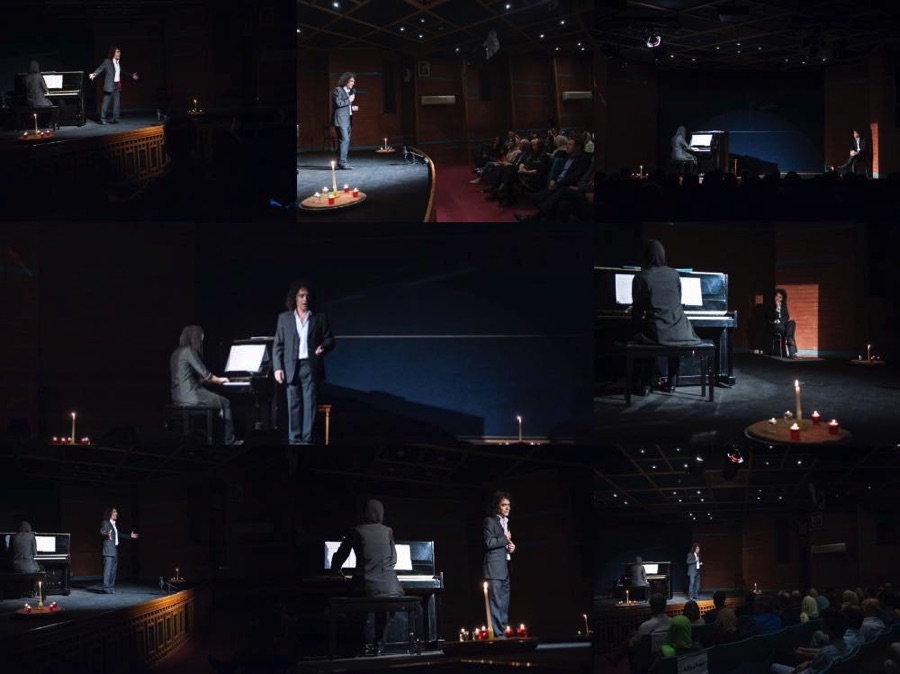

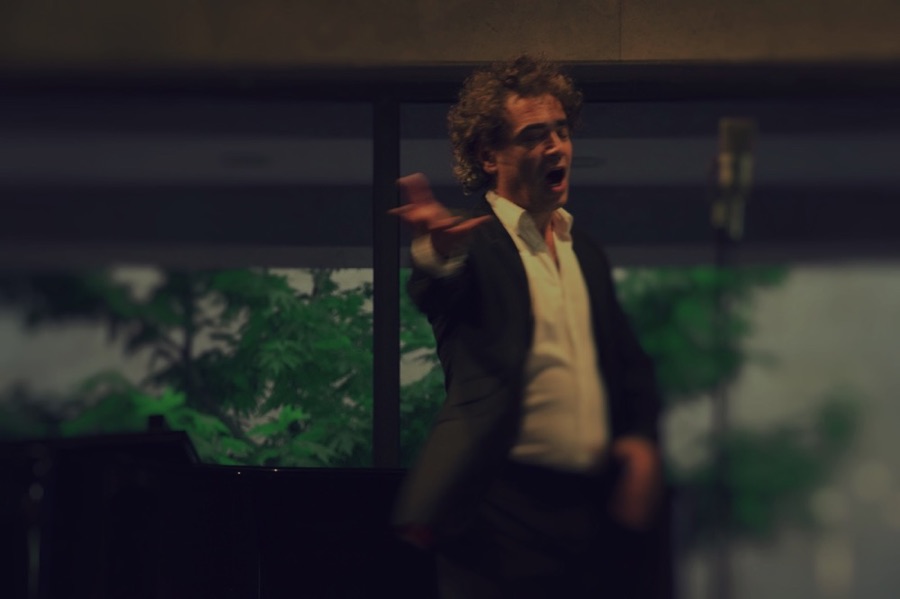


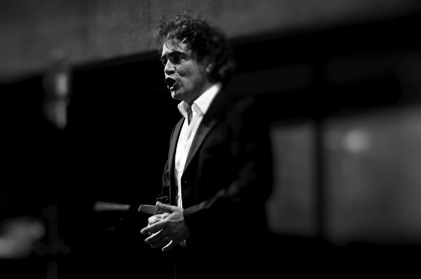


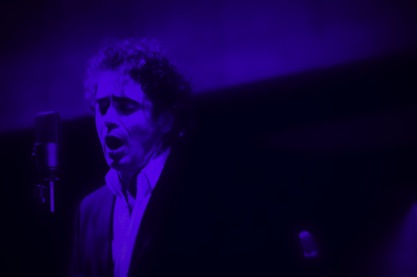

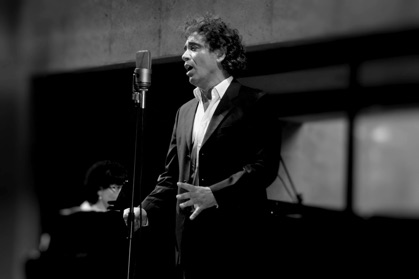
Masis Arakelian has edited many works by Komitas and combined them into a collection.
He composed violin and cello for these works and performed them as a quartet.
For several years Arakelian has been composing symphonic orchestral works, which he intends to publish in the near future. His symphonic works take motifs from mythologies regarding the origin of humanity, the interplay of elements, the gods, fear of dying, the desire for rebirth, ant eternal emergence and disintegration in nature and turn them into symphonic sounds.
„Because nothing is closer to humans than nature itself, from which we originate and whence we will return."
Masis Arakelian performs in different countries around the world presenting his compositions.
As a composer he sets to music ancient and contemporary Armenian, Persian and other poetry and mythological themes, to which he gives his own style, a new sound.
Born outside of Armenia, raised in Europe, he never lost touch with his native language, culture and homeland, which he first saw in 2011.
Inspired by the long history of Armenia and its rich cultural heritage, he sought to incorporate the roots and foundations of Armenian music into his compositions and musical orientation.

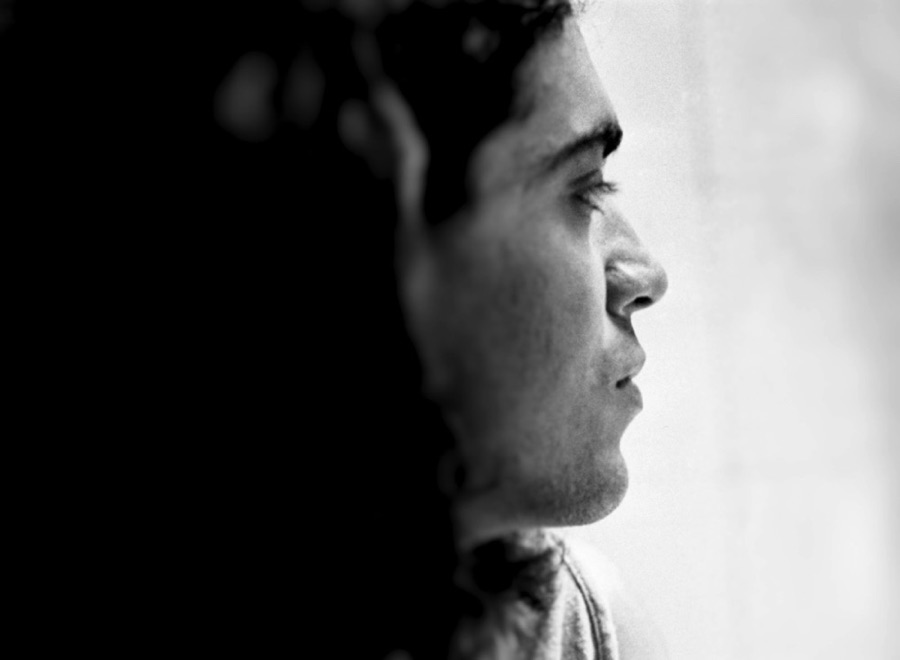

Jerasums • In my dream
In my dream I see the desired wind
Embracing your countenance and singing you a lullaby
But in my chest, the seed and the branches are dry
All my life I have wandered astray and roamed
Oh, I am confused…
your light seems to vanish
By the lilac violets you bloom anew, Mama
Your love was heartfelt.
Your memory lives on in my heart
Give my grieving soul support and breath
Sing me a song from the happy days
Then I’ll hear your voice and
The wind will carry your song to me
Oh, I am confused…
your light seems to vanish
By the lilac violets you bloom anew, Mama
Your love was heartfelt.
Composition: Masis Arakelian
Lyric: Masis Arakelian
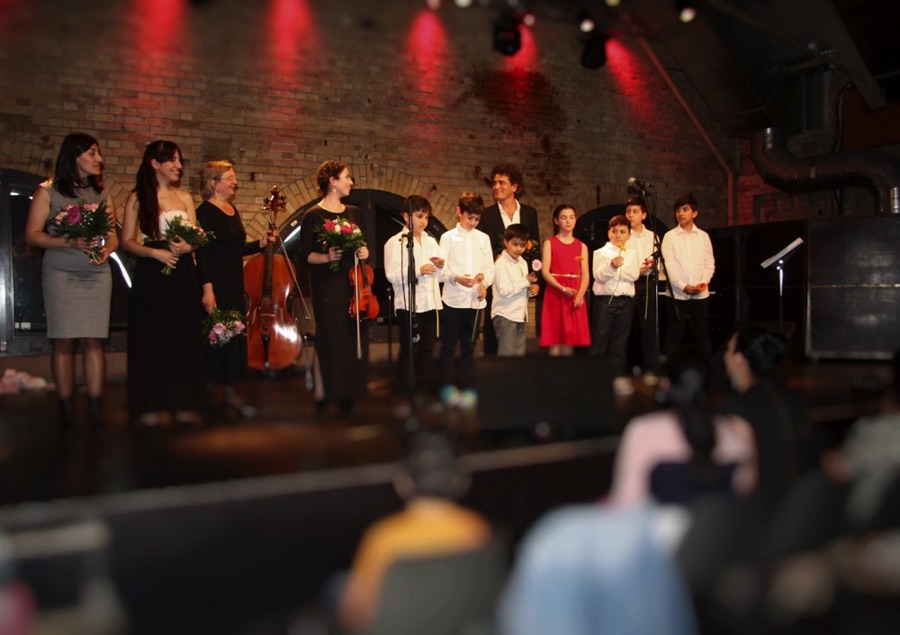

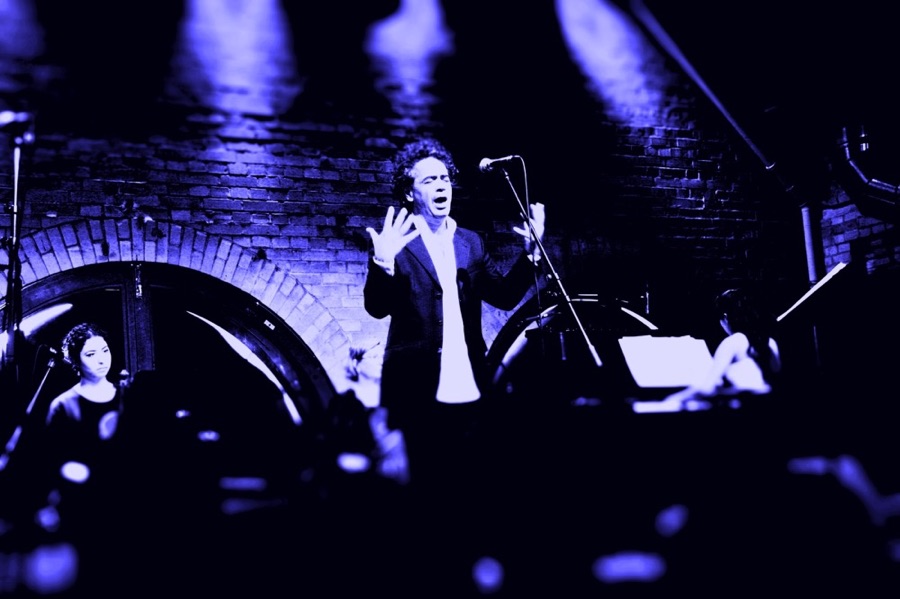

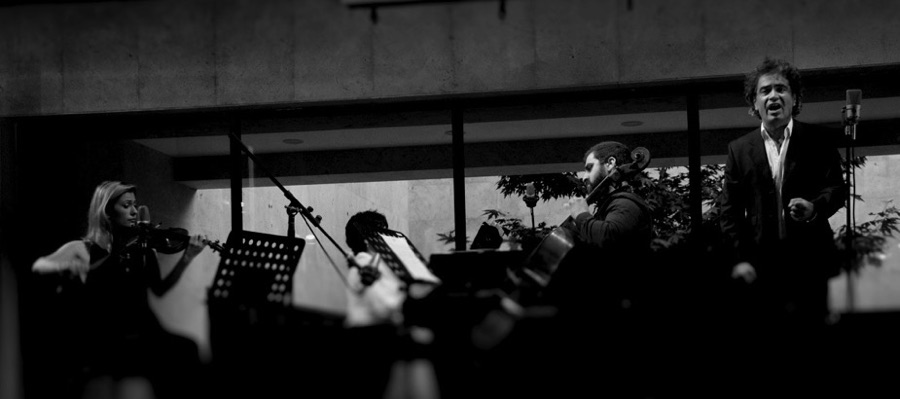


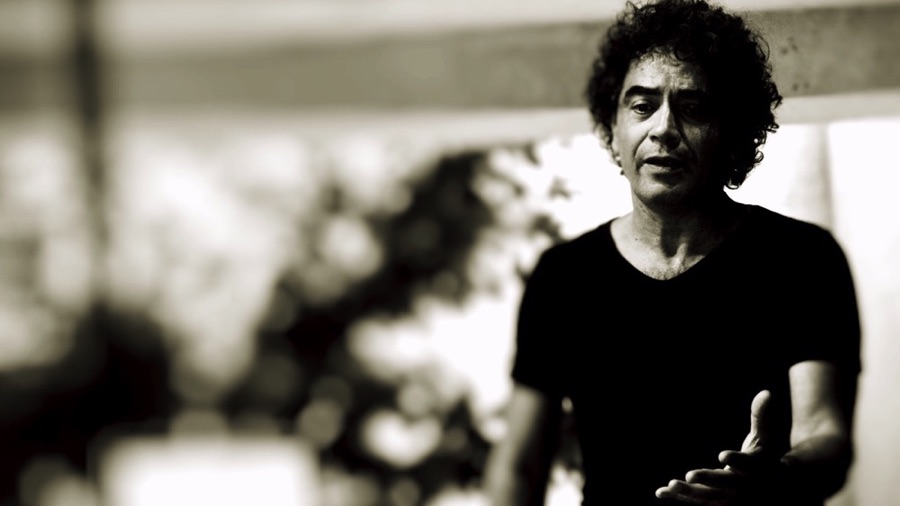

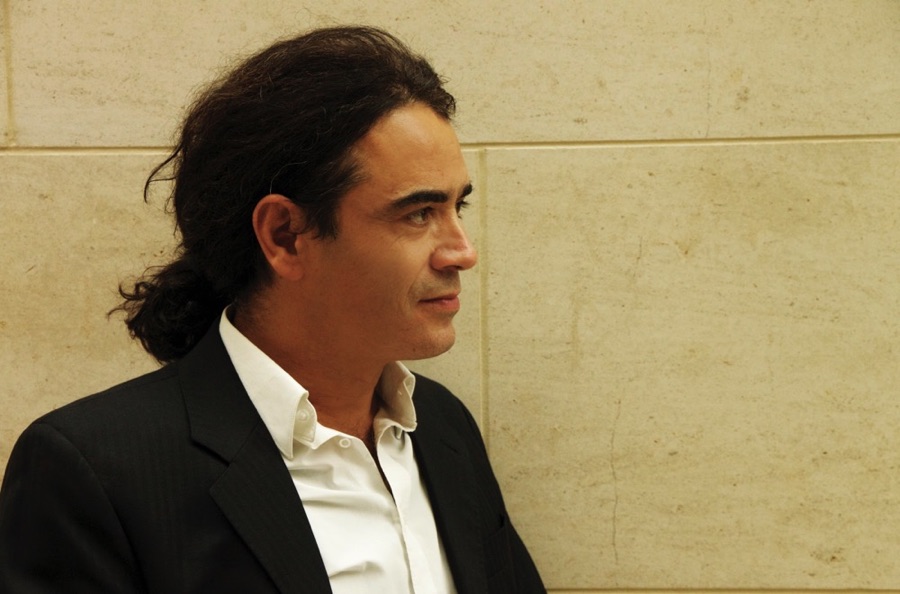

In 2016 he gave his first concert in Armenia and presented his album "Krunk-Crane“ in the Armenian capital Yerevan.
This was followed by other concerts.
In 2018 he performed the works "Crane and Poet’s Love" together in the concert hall of the Komitas Museum on the occasion of the 2800th anniversary of the Erebuni-Yerevan Palace in the capital Yerevan and dedicated the concert to the city of Yerevan.
Since 2016, Masis Arakelian has given concerts in Armenia and more concerts are planned for Armenia and other countries.
He lives and works in Berlin, Germany.
Masis Arakelian was born in Isfahan, Iran, the son of Armenian parents.
At the age of 11 he was selected by the Armenian conductor Movses Panosian to be trained in the church as a solo singer.
When he was 13, he won first prize in the Iranian Ministry of Education and Science Youth Competition in the area of Performing Arts.
In 2018 Masis Arakelian co-founded an Armenian private school named "Giteliq-Knowledge“ in Berlin,where he is active as managing director, musical director, singing teacher and choirmaster.
